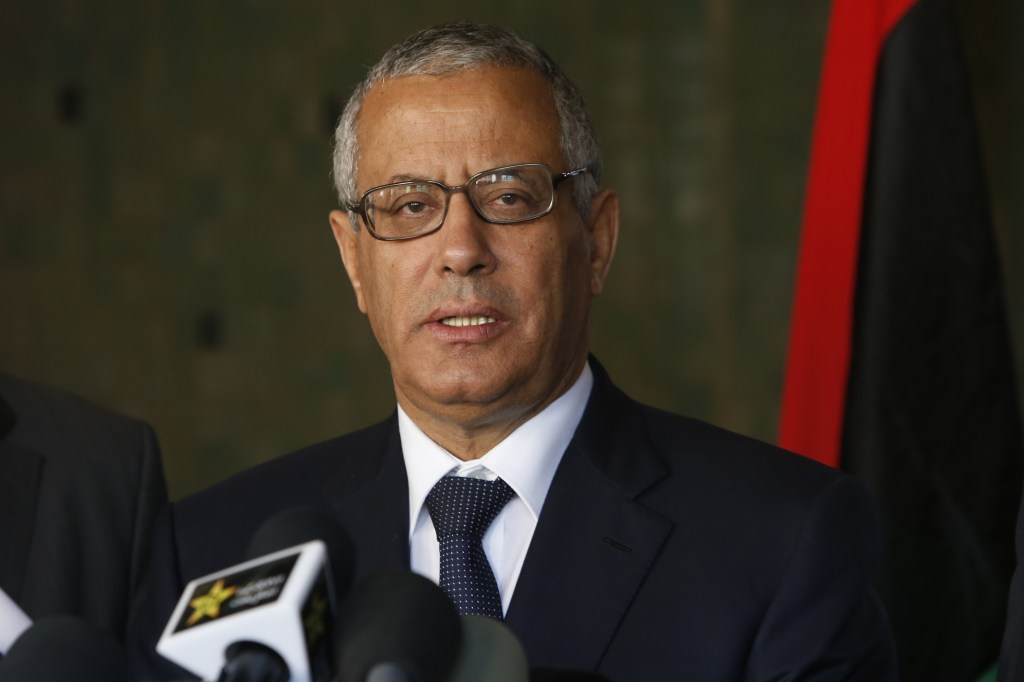TRIPOLI, Libya — Libyan Prime Minister Ali Zidan was freed from captivity just hours after gunmen abducted him Thursday at dawn from the hotel where he resides in the capital, Tripoli, according to the state news agency.
The brazen abduction — apparently in retaliation for the U.S. special forces’ raid over the weekend that seized a Libyan al-Qaida suspect from the streets of Tripoli — reflected the deep chaos and lawlessness gripping Libya.
Government spokesman Mohammed Kaabar told the LANA new agency that Zidan has been “set free” and was on his way to his office. The brief report gave no further information and details were sketchy, but it appeared Libyan forces had intervened in some way and that the abductors did not free Zidan voluntarily.
A militia commander affiliated with the Interior Ministry told a private Libyan television station that the prime minister was freed when members of a Tripoli-based militia stormed the house where he was held hostage.
Haitham al-Tajouri, commander of the so-called “Reinforcement Force,” told Al-Hurrah television that his men exchanged fire with the captors but that Zidan was not hurt.
“He is now safe in a safe place,” he said. His account could not be independently verified.
Zidan’s abduction reflected the weakness of Libya’s government, which is virtually held hostage by powerful militias, many of which are made up of Islamic militants. Militants were angered by the U.S. capture of the suspected militant, known as Abu Anas al-Libi, and accused the government of colluding in or allowing the raid.
In a sign of Libya’s chaos, Zidan’s seizure was depicted by various sources as either an “arrest” or an abduction — reflecting how interwoven militias are in Libya’s fragmented power structure.
With the country’s police and army in disarray, many are enlisted to serve in state security agencies, though their loyalty is more to their own commanders than to government officials and they have often intimidated or threatened officials. The militias are rooted in the brigades that fought in the uprising that toppled autocrat Moammar Gadhafi in 2011, and are often referred to as “revolutionaries.”
On Tuesday, Zidan said the Libyan government had requested that Washington allow al-Libi’s family to establish contact with him. Zidan insisted that Libyan citizens should be tried in their homeland if they are accused of crimes, stressing that “Libya does not surrender its sons.”
Al-Libi is alleged to be a senior al-Qaida member and is wanted by the United States in connection to the bombing of American embassies in Tanzania and Kenya in 1998, with a $5 million bounty on his head.
Immediately after the raid, the Libyan government issued a statement saying it was carried out without its knowledge and asking Washington for “clarifications” about the operation.
“The U.S. was very helpful to Libya during the revolution and the relations should not be affected by an incident, even if it is a serious one,” Zidan told a news conference in Tripoli.
Send questions/comments to the editors.



Success. Please wait for the page to reload. If the page does not reload within 5 seconds, please refresh the page.
Enter your email and password to access comments.
Hi, to comment on stories you must . This profile is in addition to your subscription and website login.
Already have a commenting profile? .
Invalid username/password.
Please check your email to confirm and complete your registration.
Only subscribers are eligible to post comments. Please subscribe or login first for digital access. Here’s why.
Use the form below to reset your password. When you've submitted your account email, we will send an email with a reset code.